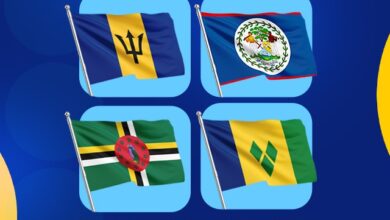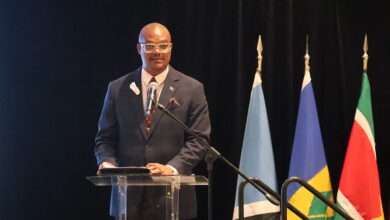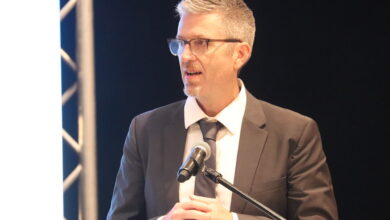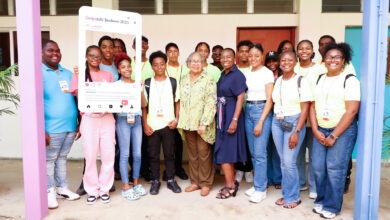CHRIST CHURCH, BARBADOS – Developing countries continue to express their interest in the Caribbean Regional Negotiating Machinery (CRNM). Many developing countries that lack representation in Geneva and that face financial difficulties associated with individual country representation in negotiating meetings see the benefits of the RNM ‘model’. The RNM ‘model’ has also attracted the attention of the European Union (EU). EU Trade Commissioner, Pascal Lamy, indicated this when he met privately with Ambassador the Honorable Dr. Richard Bernal, O.J. – Director General of the RNM – on the occasion of the recently concluded ACP-EU Joint Ministerial Trade Committee (JMTC) held on March 1st in St. Lucia. The hour long meeting between the RNM Director-General and EU Trade Commissioner touched on issues arising out of the JMTC. It also encompassed an exchange of views on the World Trade Organization (WTO) Doha Agenda which has stalled because of fundamental differences on a number of key issues and inability to reach compromises that have left issues languishing. Separate from their discussions of beleaguered global trade talks and efforts to put them back on track, Commissioner Lamy wanted to know more about the RNM. He expressed a strong interest in the concept, structure and operations of the RNM. He said that it could serve as an “important model” for other developing countries – especially those that are not part of regional integration movements but that are obligated to negotiate Economic Partnership Agreements (EPAs) with the EU. The RNM was created by CARICOM Governments to develop and execute an overall negotiating strategy for various external trade-related negotiations in which the Region is involved, as well as to co-ordinate its position in negotiations. The RNM assists its Member States in maximizing the benefits of participation in global trade negotiations by providing sound, high quality advice, facilitating the generation of national positions, coordinating the formulation of a unified strategy for the Region and undertaking/leading negotiations where appropriate. The RNM was formally established on April 1, 1997. However, since December 2001 the RNM has been substantially re-organized. The RNM now has a ‘new’ culture which emphasizes transparency, accountability, consultation, teamwork, responsiveness to stakeholders, rapport with the political directorate, partnerships with international and regional donor institutions and cooperation with regional organizations. A variety of institutional changes and staffing additions have served to catalyze these changes. A major task of the RNM is to bring a systematic and focused approach to new pressing international issues. This comes against the backdrop of a global economic environment increasingly based on free trade and moving away from the traditional preferential arrangements that have benefited many Caribbean economies. The ultimate goal is to ensure that Caribbean development is not impeded by changes in global trade arrangements and that maximum benefit can be secured in the course of strategic global repositioning. For More Information Contact: Nand C. Bardouille Tel: (246) 430-1678 email: nbardouille@sunbeach.net
News Letter
Subscribe to our mailing list to get the new updates!
Related
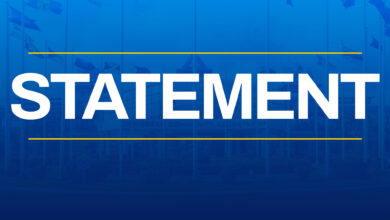
Statement | CARICOM Caucus of Ambassadors, by H.E. François Jackman, Permanent Representative of Barbados, in support of the Adoption of the UN Security Council Resolution for a UN Support Office and Gang Suppression Force (GSF) in Haiti | 30 September 2025
September 30, 2025

